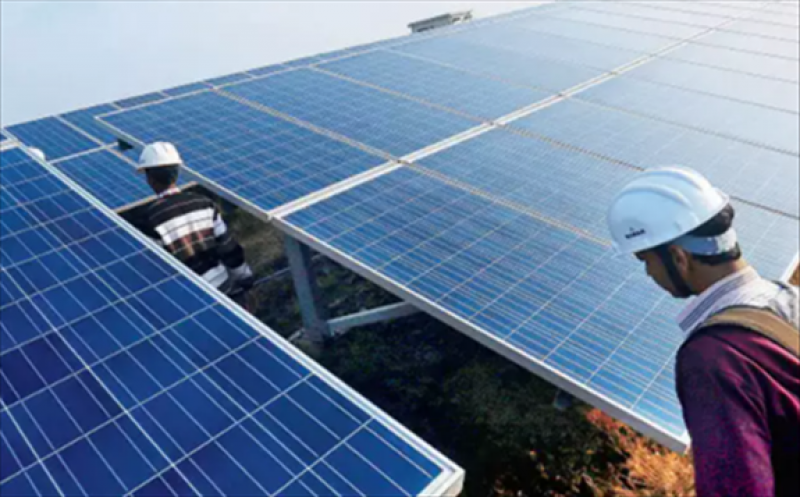Basic customs duty (BCD) of 25 per cent and 40 per cent on imported solar cells and modules, respectively, is likely to result in an increase in solar tariffs, according to ratings agency ICRA.

It, however, added that this step would have a positive impact on domestic equipment manufacturers though the extent of benefit would depend upon the imported PV module prices, especially from China.
According to Girishkumar Kadam, co-group head, ICRA ratings, BCD is expected to result in an increase in the capital cost for a solar power project by 23-24 per cent, which in turn would result in an increase in tariff by about 45-50 paise per unit.
“However, the bid tariff trajectory is likely to remain well below Rs 3 per unit and thus, would continue to remain cost-competitive from the off-takers’ perspective,” said Kadam.
He added that for the state-owned utility off-takers, average power purchase cost and variable cost of power purchase remain in the range of Rs 4-5 per unit and Rs 3-3.5 per unit, respectively, in many states.
On 9 March, the government approved a proposal to impose basic customs duty on solar cells and modules with effect from April 1, 2022. However, clarification was still pending on the continuation of the safeguard duty on imported cells and modules, which is currently at 14.5 per cent, valid till July 2021.
According to the government proposal, for the project already bid out and having scheduled commissioning date post April 2022, the levy of BCD is expected to be a change-in-law event under the power purchase agreement.
ICRA said that in such cases, the timely approval by the respective regulatory commissions and pass-through of the tariff increase to the off-takers would be critical from the cash-flow perspective for the project developers.
“In addition, the module price trends remain a key monitorable for the solar power developers, in view of the recent firmness in the imported module prices,” it added.
According to Vikram V, sector head, ICRA Ratings, based on an imported module price level of 18 cents per Watt and prevailing rupee-dollar exchange rate, the domestic modules are costlier by 12-15 per cent without the impact of BCD.
He said that the imposition of BCD would bridge this gap and make the modules from a domestic manufacturer competitive against the imported modules. The extent of benefit would be higher for manufacturers having backward integration into cell manufacturing.
However, ICRA added that clarity was required on the applicability of BCD on manufacturers located in the SEZs, as a large portion of the manufacturing units in India are at present located in these regions.